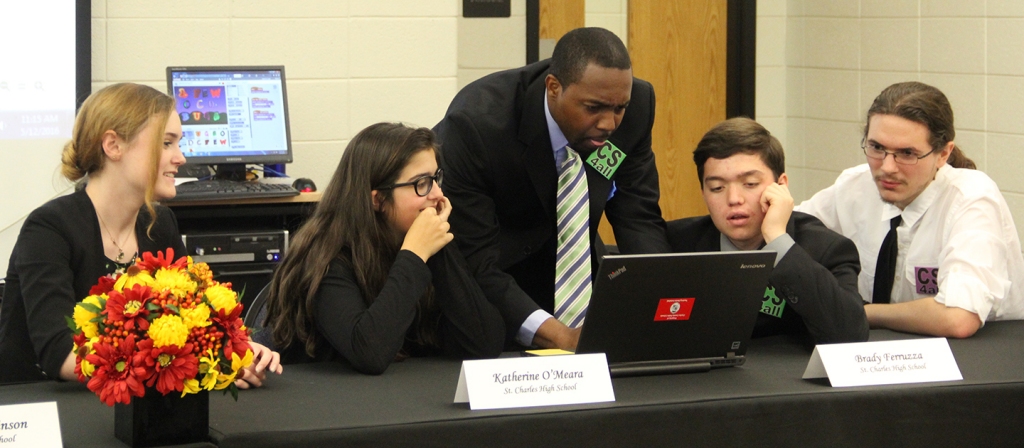LA PLATA, Md. (July 13, 2016)—Just because almost everyone in the country carries a miniature computer in their pocket thanks to the prevalence of smartphones, it doesn't mean the majority of operators know the science behind the gadgets.
"The U.S. is starting to get a little bit behind," said Dianne O'Grady-Cunniff, an instructional specialist for computer science and technology education with Charles County Public Schools (CCPS). "We can not just be users, but creators of technology."
O'Grady-Cunniff, along with a handful of educators from around the country, recently met with congressional staffers on Capitol Hill to discuss the importance of computer science and the need for national financial support to bring courses to the country's classrooms.
Justin Brower with U.S. Rep. C.A. Dutch Ruppersberger's (D-Md., 2nd) office and Jamie DeAtley of U.S. Rep. Steny Hoyer's (D-Md., 5th) team met with O'Grady-Cunniff and educators from Illinois, California, New York, Tennessee, Washington, D.C., New Hampshire and Pennsylvania to get feedback and opinions from teachers about computer science. The group also briefly met John B. King, Jr., U.S. secretary of education.
The push for computer science has two prongs, O'Grady-Cunniff said.
The first is about equity. Presently, it is only a privileged few who have easy access to computer science lessons. By bringing it to more people—from various backgrounds -the pool of potential operators deepens. "By providing access, you can find the people who are good at it," O'Grady-Cunniff said.
The second part of making computer science a must-take subject is it will lead to the development of homegrown experts. Those who will ensure the binary highways of the country are safe and secure without having to rely on other countries to provide cybersecurity.
CCPS has trained more than 300 teachers to teach computer science—educators who are art teachers, those who teach English or engineering. "They're learning along with the kids," O'Grady-Cunniff said.
"It's working," she said, adding that a few years ago when the idea of teaching computer science to children in elementary through high school was brought to Kimberly Hill, superintendent of schools, it was a met with excitement.
"Dr. Hill let us leap into the pool," O'Grady-Cunniff said. "We had to see if we can swim. And we're not treading water. We're swimming."
CCPS Specialist Visits Capitol Hill to Discuss CS4All

Terence Stone, who teaches computer science at St. Charles High School, goes over last minute details on a presentation made by Alex Atkinson, left, Kate O'Meara, Brady Ferruzza and Robert Smith at a CS4All event hosted earlier this year by Charles County Public Schools. (Submitted photo)


